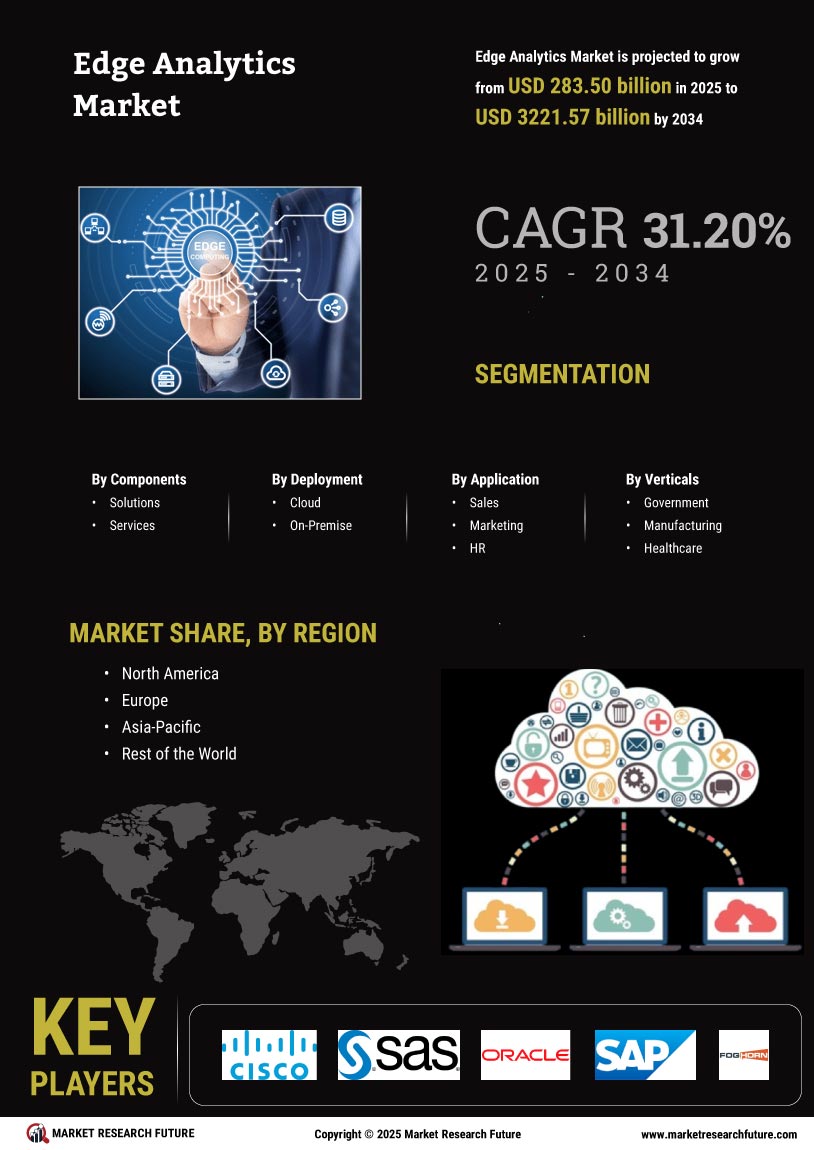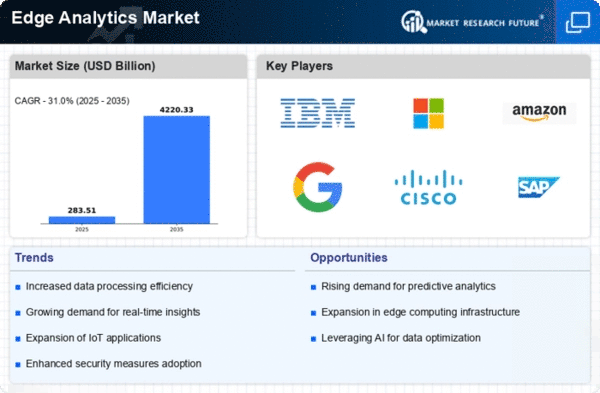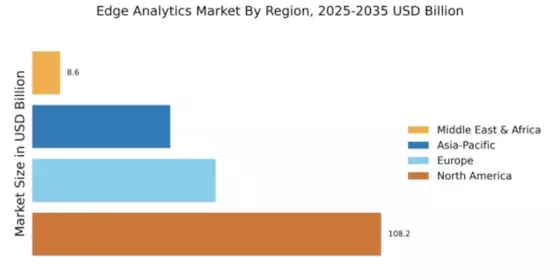Growth of IoT Devices
The proliferation of Internet of Things (IoT) devices significantly influences the Global Edge Analytics Market Industry. With billions of connected devices generating vast amounts of data, the need for localized data processing becomes paramount. Edge analytics allows for the analysis of data at the source, reducing latency and bandwidth usage. For example, smart cities utilize edge analytics to manage traffic flow and optimize energy consumption. The market is poised for substantial growth, with a projected CAGR of 31.37% from 2025 to 2035, indicating that as IoT adoption continues, edge analytics will play a crucial role in managing and interpreting the data generated.
Need for Cost-Effective Solutions
The pursuit of cost-effective solutions drives the Global Edge Analytics Market Industry as organizations seek to optimize their operational expenditures. Edge analytics can reduce the costs associated with data transmission and storage by processing data locally. For example, retail businesses utilize edge analytics to analyze customer behavior in-store, allowing for targeted marketing strategies without incurring high data transfer costs. This focus on cost efficiency is expected to contribute to the market's growth trajectory, particularly as businesses aim to maximize their return on investment. As such, the demand for affordable edge analytics solutions is likely to rise.
Enhanced Data Security and Privacy
In an era where data breaches are prevalent, the Global Edge Analytics Market Industry is witnessing a heightened focus on data security and privacy. By processing data at the edge, organizations can minimize the risk of sensitive information being transmitted over networks, thereby enhancing security. Industries such as finance and healthcare are particularly sensitive to data privacy concerns. For instance, edge analytics can enable financial institutions to analyze transactions locally, reducing exposure to cyber threats. As regulatory frameworks evolve, the emphasis on secure data handling is likely to propel the adoption of edge analytics solutions, further driving market growth.
Advancements in Edge Computing Technology
Technological advancements in edge computing are pivotal to the evolution of the Global Edge Analytics Market Industry. Innovations such as improved hardware capabilities and sophisticated algorithms enhance the efficiency of edge analytics solutions. For instance, the integration of artificial intelligence and machine learning at the edge allows for more complex data analysis and decision-making processes. This technological evolution is expected to contribute to the market's expansion, with projections indicating a growth to 4226.7 USD Billion by 2035. As organizations seek to leverage these advancements, the demand for edge analytics solutions is likely to increase, fostering a competitive landscape.
Rising Demand for Real-Time Data Processing
The Global Edge Analytics Market Industry experiences a surge in demand for real-time data processing capabilities. Organizations across various sectors, including manufacturing and healthcare, increasingly rely on instantaneous data insights to enhance operational efficiency. For instance, in smart manufacturing, edge analytics enables real-time monitoring of equipment, leading to predictive maintenance and reduced downtime. This trend is reflected in the projected market growth, with the industry expected to reach 210.2 USD Billion in 2024. As businesses recognize the value of timely data, the adoption of edge analytics solutions is likely to accelerate, driving further investments in this technology.


















